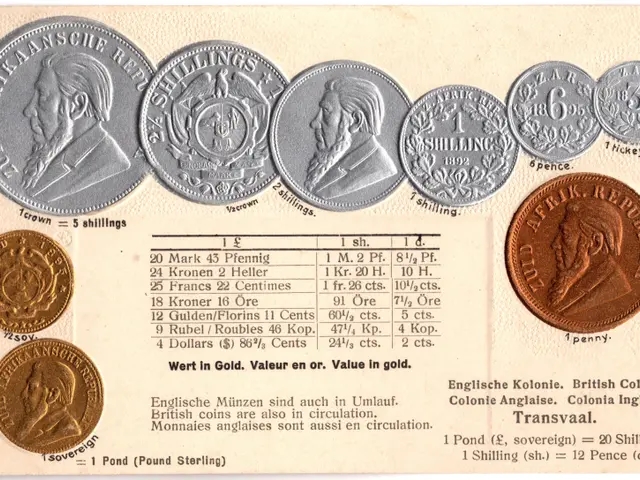Top 17 Nutrient-Rich Foods to Lower Kidney Stone Risk:
Preventing Kidney Stones: Essential Foods for Optimal Urinary Health
Kidney stones, a common yet painful condition, are caused by the crystallization of minerals and salts in the urinary system. These small, hard deposits can lead to severe discomfort and potential complications, emphasizing the importance of preventive measures. Fortunately, diet plays a significant role in maintaining kidney health and reducing the risk of stone formation. By understanding which foods offer protective benefits, individuals can take proactive steps to safeguard their kidneys and promote overall health. Here are 17 key foods to incorporating into your diet for a kidney-friendly and healthy urinary system.
- Watermelon: Rich in water content, watermelon keeps the urinary tract hydrated and helps flush out excess minerals, reducing the risk of stone formation. Its diuretic properties promote increased urine production, while its high potassium content assists in regulating acid levels, minimizing the chances of stone development. Regular consumption of watermelon, particularly during hot weather, helps maintain hydration and support kidney health.
- Citrus Fruits (Lemons, Oranges, and Grapefruits): Citrus fruits are high in citric acid, which helps prevent calcium oxalate stones by increasing urine citrate levels and reducing the risk of stone formation. Citrus fruits also boost immunity and provide essential vitamins crucial for urinary health. Adding citrus juices to meals or enjoying them as snacks is an effective way to improve kidney health.
- Leafy Greens (Low-Oxalate Varieties): Greens like kale, arugula, and bok choy offer essential nutrients without contributing high oxalate levels, making them kidney-friendly options. Rich in magnesium, these greens can help prevent stone formation by reducing oxalate absorption. Incorporating a variety of low-oxalate greens into meals ensures a diverse range of nutrients, while supporting urinary health.
- Apples: Rich in fiber and antioxidants, apples support kidney health and reduce the risk of stone formation. They help maintain balanced pH levels, reducing the likelihood of acidic conditions that promote stone development. Incorporating apples regularly into meals or snacks helps maintain overall health while supporting the kidneys.
- Lentils and Legumes: Lentils, chickpeas, and other legumes provide plant-based protein that reduces strain on the kidneys, compared to animal proteins. They also offer magnesium and potassium, essential for preventing kidney stones. Furthermore, the high fiber content supports digestion and regulates mineral absorption.
- Cucumbers: Hydrating and refreshing, cucumbers help flush out toxins and minerals from the urinary system. They contain antioxidants and anti-inflammatory compounds that promote overall kidney function. Cucumbers can be enjoyed in salads, infused water, or snacks, making it simple and effective to support kidney health.
- Bananas: Rich in potassium, bananas help balance sodium levels, reduce calcium excretion in urine, and promote a healthy electrolyte balance, all of which aid in preventing kidney stones. Regularly consuming bananas supports overall kidney function and provides sustained energy and cardiovascular benefits.
- Berries (Strawberries, Blueberries, and Raspberries): Packed with antioxidants and low in oxalates, berries reduce inflammation, protect the kidneys from oxidative stress, and improve overall antioxidant levels, contributing to long-term kidney health.
- Celery: Celery promotes urine production and flushes out toxins, reducing the risk of kidney stone formation. It also contains compounds that break down calcium deposits, further supporting urinary health. Consuming celery regularly in meals, soups, or juices helps maintain a clean and healthy urinary system.
- Whole Grains: Rich in fiber and magnesium, whole grains like quinoa, brown rice, and oats lower the risk of stone formation and support digestive health. Incorporating whole grains into meals enhances both nutrition and kidney health.
- Pineapple: Rich in bromelain, pineapple helps reduce inflammation and supports overall kidney health. Its high water content also aids in flushing out excess minerals from the urinary system.
- Parsley: Parsley detoxifies the kidneys, promotes increased urine production, and helps flush out toxins. Rich in vitamins A and C, parsley supports immune function and kidney health.
- Bell Peppers: Low in oxalates and high in vitamin C, bell peppers protect against calcium oxalate stone formation with their antioxidant properties. Including bell peppers in meals supports kidney health while adding flavor.
- Yogurt: Low-sodium and calcium-rich yogurt binds to oxalates in the digestive tract, reducing absorption and the risk of stone formation. The probiotics in yogurt support gut health indirectly, benefiting overall kidney function.
- Ginger: Known for its anti-inflammatory and detoxifying properties, ginger supports kidney health and reduces the risk of stone formation by promoting detox processes.
- Tomatoes (Without Seeds): Hydrating and rich in nutrients like potassium and vitamin C, tomatoes support kidney function. Removing their seeds makes them a kidney-friendly food for susceptible individuals.
- Sweet Potatoes: Rich in magnesium and potassium, sweet potatoes help balance mineral levels in the body and reduce calcium excretion in urine. High in fiber, sweet potatoes support digestive health and overall kidney function.
By incorporating these foods and practices into your diet, individuals can help reduce the risk of developing kidney stones while promoting overall kidney health.
- Nuts and Seeds: Almonds, walnuts, flaxseeds, and chia seeds are rich in essential minerals, magnesium, and fiber that aide in kidney function, regulate mineral levels, and support digestive health.
- Egg Whites: Low in purines and phosphorus, egg whites reduce the risk of kidney stone formation and provide high-quality protein essential for various health concerns, including fitness and exercise.
- Lean Meats: Lean chicken, turkey, and fish are low in purines, phosphorus, and sodium compared to red meats, reducing strain on the kidneys and promoting heart health.
- Olive Oil: Rich in monounsaturated fats, olive oil helps reduce inflammation, support digestive health, and maintain heart health, indirectly benefiting kidney function.
- Low-Fat Dairy: Skim and low-fat milk, cheese, and yogurt provide important nutrients like calcium and vitamin D, reducing the risk of chronic diseases like osteoporosis and kidney stones.
- Tofu: A versatile, low-purine protein source for vegetarians, tofu offers essential nutrients while supporting heart and kidney health.
- Green Tea: Rich in antioxidants and low in oxalates, green tea helps reduce inflammation and potential kidney damage, contributing to overall kidney health.
- Skin-on Fish: Fatty, skin-on fish like salmon, mackerel, and sardines provide essential omega-3 fatty acids that promote heart health, indirectly benefiting kidney function.
- Mushrooms: Low in oxalates and purines, mushrooms offer vitamins, minerals, and antioxidants while supporting overall kidney health.
- Low-Sodium Broths: Low-sodium chicken or vegetable broths aid in maintaining hydration and support healthy kidney function.
- Garlic: Known for its anti-inflammatory properties, garlic supports overall health and kidney function, promoting the body's elimination systems.
- Spinach: Rich in magnesium and potassium, spinach helps prevent stone formation by reducing oxalate absorption and supports overall health.
- Herbal Infusions (Decaf Teas): Consuming herbal infusions like dandelion root, fennel seed, and marshmallow root moderately promotes kidney health and supports digestive function. [Note]: Be mindful of herb-drug interactions when on medicare or using other therapies and medications.
By adopting a balanced, nutrient-dense, and low-oxalate diet, individuals can address not only kidney health but also various aspects of their health-and-wellness, such as mental, men's, and women's health, and even weight management. Extension of this diet to workplace-wellness initiatives can help promote a healthier work environment and potentially prevent chronic diseases like cancers and chronic kidney diseases. Additionally, understanding the effects of environmental-science factors like climate-change and that of specific medical-conditions such as autoimmune-disorders can help individuals make informed decisions to protect their health. Meanwhile, considering the long-term implications of climate-change, manufacturers, the retail industry, and the automotive sector can play a role in mitigating their environmental impact while maintaining the health of their workers through workplace-wellness programs and investing in sustainability practices. Lastly, in the context of space-and-astronautics, understanding the unique medical challenges of living in space (including respiratory and digestive health, eye-health, hearing, and even skin-conditions) and the effectiveness of various therapies-and-treatments will be crucial for the health and well-being of future astronauts and for space exploration. Overall, maintaining a balanced diet, practicing fitness-and-exercise, managing stress (mental-health), and embracing a holistic approach to health will lead to an improved quality of life and contribute to the ongoing scientific advancements in nutrition, medicine, environmental science, and industry.








